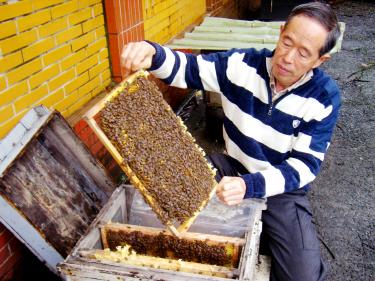Diwali, or Deepavali, is one of the most popular festivals of Hinduism, celebrated throughout India and in many other countries around the world.
A longstanding tradition dating back to ancient times in India, it is celebrated every year over five days between mid-October and mid-November in the northern hemisphere. This year, it started on Tuesday and wraps up today. The main festivities took place on Thursday, the third day of the festival.
The name diwali derives from the Sanskrit words dipam, meaning “light, lamp” and oli, for “glow of light.” The festival signifies the victory of light over darkness, of good over evil, hope over despair, and of knowledge over ignorance.
The first day, Dhanteras, is all about celebrating wealth. People clean their houses thoroughly in preparation for this day, in order to welcome Lakshmi, the goddess of prosperity, into their homes.
On the main day, the third of the five days, fireworks are set off, and diyas — small clay lamps — and candles are placed around the home. This is what gives diwali the name “the festival of lights.”
(Paul Cooper, Taipei Times)
排燈節是最受歡迎的印度教節慶之一,印度各地和許多國家都過排燈節。
排燈節的傳統由來已久,可追溯至古印度時期,每年十月中至十一月中北半球都會舉行五天的慶祝活動。今年的慶典自本週二開始,到今天結束;主要的慶祝活動是在第三天,也就是本週四舉行。
排燈節的原文diwali源自梵文的dipam和oli:dipam意指「光」和「燈」,而oli指「光芒」。此節慶象徵光明戰勝黑暗、良善戰勝邪惡、希望戰勝絕望,以及知識戰勝無知。
慶典的第一天是慶祝財富的財神節。人們為了準備這天會把房子徹底清掃乾淨,以迎接印度教繁榮昌盛之神吉祥天女的來訪。
在這為期五天的慶典中,主要的活動是在第三天,當天會放煙火,也會在住家各處擺放陶土製小燈以及蠟燭。這就是為什麼排燈節又叫做「光明節」。
(台北時報編譯林俐凱譯)
This story has been viewed 1074 times.
